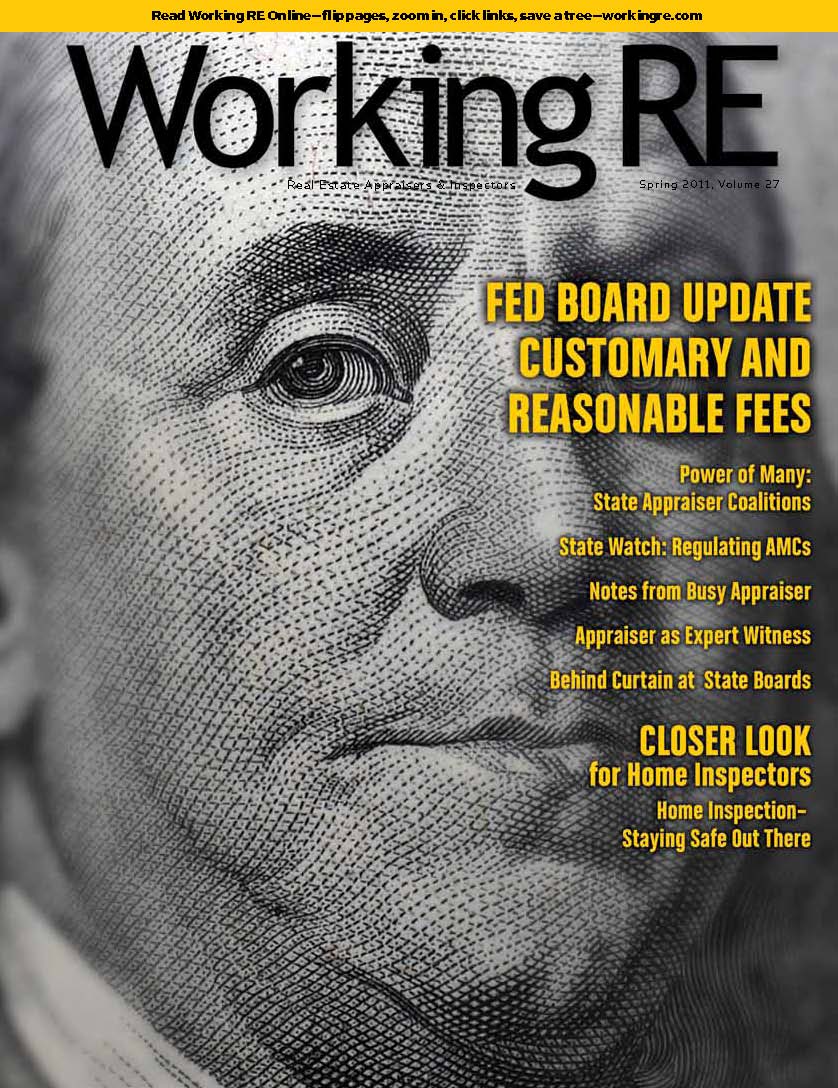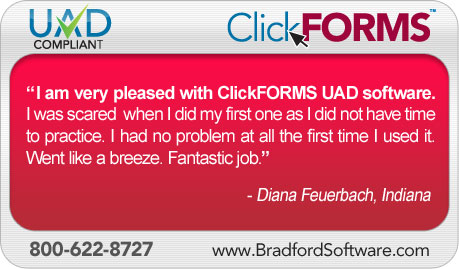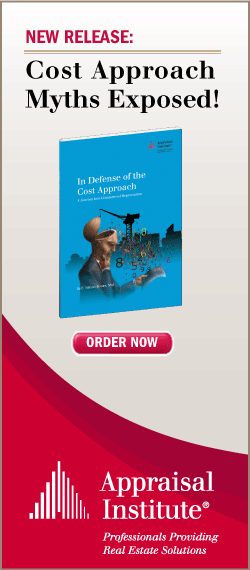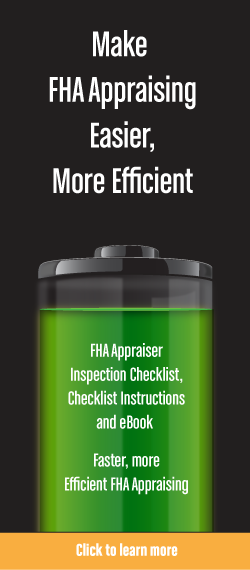
|
Published by OREP, E&O Insurance Experts | Sept. 14, 2011 | Vol. 232 |

|
> Surveys
> Blogs
> Leave Comments Below |
"The
guarantee of customary and reasonable fees, enshrined into law, is today
just a bad joke for many appraisers, some five months after the provision in
Dodd-Frank took effect. Why? A recent phone conversation with a
well-intentioned state regulator sheds some light."
Editor’s
Note:
The concept
of ensuring one group of professionals a “fair” fee is unprecedented, which
is why no one has figured out a way to make it work- yet.
C&R Fees: Why it isn't Working... Yet
By David Brauner, Editor
The guarantee of customary and reasonable fees, enshrined into law, is today just a bad joke for many appraisers, some five months after the provision in Dodd-Frank took effect. Why? A recent phone conversation with a well-intentioned state regulator sheds some light.
This highly-placed state appraisal board official is grappling with proposed appraisal management company (AMC) legislation in his state. He wants to include customary and reasonable fee language for appraisers but can’t find a way to make it work (and like so many others these days wishes to remain unidentified).
AMC licensing regulation
at the state level, as mandated by Dodd-Frank, is the new frontier and
offers great hope for the profession. Appraiser-friendly AMC licensing laws
can address many ills, such as guaranteeing timely payment by AMCs, the
competency/licensing of AMC staff, making third-party indemnification
agreements illegal and making AMCs demonstrate proper cause, when
challenged, for the removal of an appraiser from a fee panel. But what it
can’t do, it seems, is solve the customary and reasonable fee conundrum.
The issue of customary and
reasonable fees did not exist before the Home Valuation Code of Conduct (HVCC)
catapulted AMCs to dominance in the marketplace. Before HVCC, appraisers
could compete without restriction. Today, the moniker “independent fee
appraiser” rings with a bitter irony; many appraisers (and ex-appraisers)
will tell you they became much less independent after HVCC. But what’s the
fix?
What Went Right and Wrong
The concept of ensuring one group of professionals a “fair” fee is unprecedented, which is why no one has figured out a way to make it work- yet. Think of the mountains that were moved to get such a provision into law, over the opposition of the powerful banks. But on this issue lawmakers clearly did side with those advocating appraiser interests and agreed that a radical fix (C&R fees) is required to redress an equally unprecedented consequence: by edict of one attorney general in one state, many appraisers found themselves suddenly unable to do business with their own clients and competing for work from anonymous AMCs, not based on their reputation, work product or competency but, in many cases, on speed and price. This it turns out, is not so good for consumers, who also are paying more for appraisals since HVCC.
So what went wrong? According to
Darwin Ernst, SRA, who sits on the Montana State Appraiser Board and
participated in the lobbying efforts that led to the appraiser sections of
Dodd-Frank, the current state of affairs is an unfortunate mistake. “The
Interim Final Rule provides AMCs with two ways by which they are presumed to
comply with the requirements for the payment of a customary OR reasonable fee,”
said Ernst. “Unfortunately, one of the presumptions allows AMCs to use the fees
they were paying prior to Dodd-Frank as the basis for customary and reasonable.
This was an unfortunate misinterpretation of the amendment to the Truth in
Lending Act (TILA) by the bank regulatory agencies that were under intense
pressure by lobbyists to maintain the profit margins of AMCs. Ultimately, the
customary and reasonable fee provision intended to help protect the public trust
was watered down to the current interpretation of compliance, which has allowed
AMCs to keep their profit margins and not pay appraisers customary AND
reasonable fees.”
But Ernst sees hope. “The Consumer Financial Protection Agency (CFPA),
now in charge, needs to make the changes to these rules, so that compliance
includes a customary and reasonable fee to fulfill the intent of
Dodd-Frank and protect consumers,” Ernst says. “I believe they will eventually
do the right thing, but who knows how long it might take. They have a daunting
task but the implementation of rules that meet the intent of the customary and
reasonable fee provision will go a long way toward correcting a major mistake by
the drafters of the interim rules. Everyone knows there is a difference between
the words ‘or’ and ‘and.’ Let's just hope the CFPA recognizes the error and
makes a change sooner rather than later.”
C&R Fees in Montana
The Montana AMC licensing statute, which Ernst helped write, requires that AMC fee-panel appraisers, "Be compensated at a customary and reasonable rate when the appraisal management company is providing services for a consumer credit transaction secured by the principal dwelling of a consumer..." But what does that mean? This brings us back to the frustrated appraisal board official trying to enact a similar provision in his state. The regulator says he can’t get to first base with customary and reasonable fees because mandating a fee is unprecedented for any trade or profession. Critics ask him: why stop at appraisers? Why not dictate how much a haircutter should be paid or a car mechanic?
While the language did pass in
Montana, the miss-interpretation of “customary” or “reasonable” makes
enforcement convoluted, according to Ernst. The customary and reasonable fee
provision within Dodd-Frank was included as an amendment to TILA. Because it is
an amendment the regulatory oversight rests partially with the various state
attorneys general and not the state appraiser boards (or commissions). For now,
Ernst says, state agencies that wish to support the concept of customary and
reasonable fees are forced to rely on the state attorneys general to enforce any
infraction. The result is that state agencies that receive complaints regarding
C&R fees will likely refer them directly to their state attorney general. It is
possible that the state appraiser boards can be involved in the investigation of
complaints, Ernst says, but the actual enforcement has to come from the state
attorney general and/or a federal agency.
Conclusion
It appears appraisers are in a transition period with
respect to the enforcement of the
customary and reasonable fee provision of Dodd-Frank; in neutral until someone
can figure a way to give it some gas. Many appraisers report AMC fees creeping
up, however, due to “market driven forces” - they are digging in and refusing to
work less.
Filing Complaints
Appraisers also report that
filing complaints gets results, at least if one is having trouble getting paid
at all. If you’re filing a complaint of any kind and you know it’s a
federally-regulated bank, you can file with the
Office of the Comptroller of the Currency (OCC):
http://www.mortgagesfinancingandcredit.org/mortgages/complaints-regulatory/occ2.htm.
If you’re not sure where to file, (former) Federal Reserve Board employees with
this expertise are now at the CFPA, according to a Fed Board spokesperson. At
press time, it could not be confirmed from the CFPA that they are the place for
information on where and how to file complaints, now that authority has
transitioned to them from the Fed Board. You can call the CFPA at (202)
435-7000. Their complaint page is:
http://www.consumerfinance.gov/get-help-now/consumer-questions-and-complaints/.
You can post your experiences with
filing C&R Fee complaints at the OREP.org/Working RE
Challenging Low Fees Blog. You can learn about the good, bad and ugly AMCs
at the
AMC Rater Blog, also sponsored by OREP.org/Working RE.
About the Author
David Brauner is Editor of Working RE magazine and Senior Broker at OREP.org, a leading provider of E&O Insurance for appraisers, inspectors and other real estate professionals in 49 states (OREP.org). He has covered the appraisal profession for over 16 years. He can be contacted at dbrauner@orep.org or (888) 347-5273. Calif. Insurance Lic. #0C89873.
HTML Comment Box is loading comments...
ATTENTION: You are receiving WRE Online News because you opted in at WorkingRE.com or purchased E&O insurance from OREP. WRE Online News Edition provides news-oriented content twice a month. The content for WRE Special Offer Editions is provided by paid sponsors. If you no longer wish to receive these emails from Working RE, please use the link found at the bottom of this newsletter to be removed from our mailing list.



